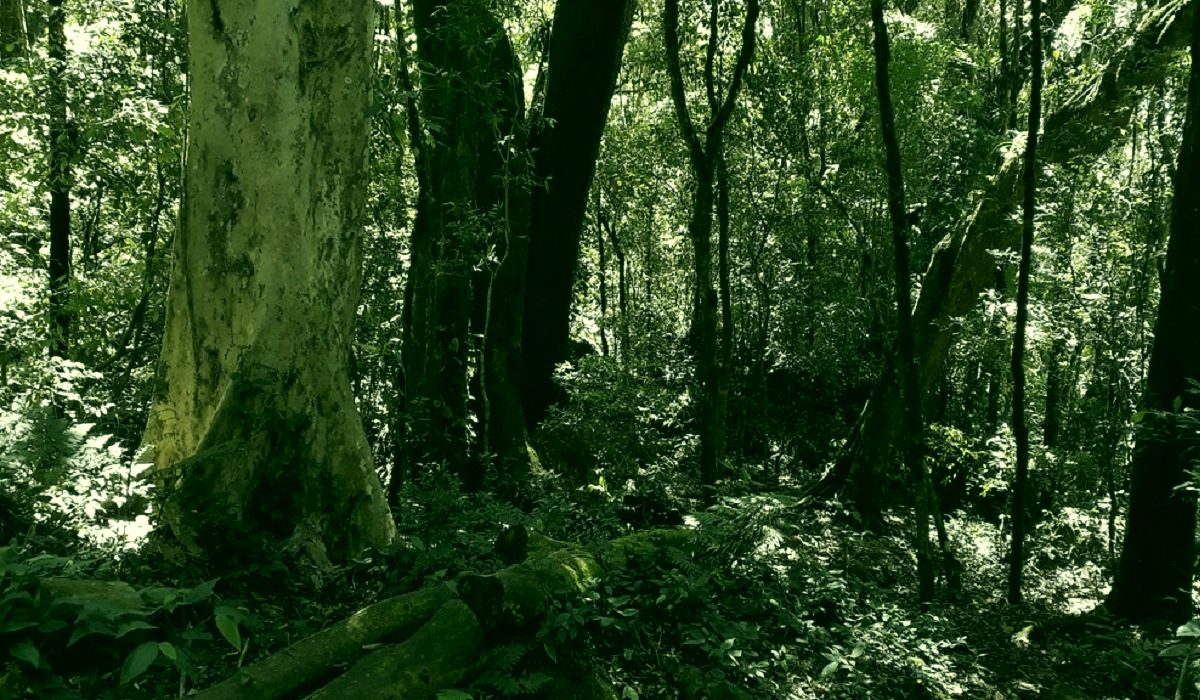by paulo eneas
(para ler versão em português clique aqui)
A denouncement of illegal deforestation, which has been carried out through a forest exploration license obtained by means supposedly fraudulent means, in the township of Feliz Natal (MT), a region near to the Xingu National Indigenous Park, unveil a complicated network of corruption allegations, illegalities and influence of local political elites in the enforcement of environmental laws and all the land ownership related issues in Brazil.
The story began between around the years of 1953/1955, when a rural area located in the township of Feliz Natal (MT), near to the city of Sinop (MT) and around the surroundings of what would become later The Xingu National Indigenous Park, was acquired by a family of farming entrepreneurs.
When it was acquired, the area belonged to the then township of Chapada dos Guimarães and the area was known by the name of Gleba Cauby, after the name of local ethnic indigenous groups in the region, and later became known as Gleba Porto Feliz.
Since its acquisition, the property has been preserved in its entirety, including its native forests, which was made through the execution of rural activities that allowed the preservation of the natural conditions of the local. These rural activities also included the labor of local indigenous people.
When the Xingu National Indigenous Park was legally settled in 1961, about a fifth of the total area of Feliz Natal township became part of this indigenous reserved area. Some few years later, the Government of the State of Mato Grosso declared certain areas of that municipality close to the indigenous park to be state-owned public areas, without a recognized private possession.
Since then, a permanent process of “land grabbing” (illegal possession of lands), illegal actions by clandestine logging companies and other conflicts on rural land ownership began to occur in the region, which gave rise to a series of legal disputes and lawsuits on land ownership in that region.
One of these disputes involves precisely the Gleba Porto Feliz, which originally had 10,000 hectares, and which today has an area of about 6,000 hectares as officially documented by Government of State of Mato Grosso at CAR-GEO. There is a court litigation between some individuals on the ownership of Porto Feliz.
In June 2013, the company Agropecuária Diamante, owner of Gleba Porto Feliz, filed a land ownership regularization process (Nr. 647241/2013) at Land Institute of Mato Grosso (Intermat), because the the area was declared state-owned publica areas. As a result of the process and by court decision, the ownership of these properties is under judicial consideration. In February 2016, the company was granted an authorization for its operations by the Government of the State of Mato Grosso, to carry out livestock activities in that area.
The litigation that was set in 2016 involves Agropecuária Diamante Company, and a group of people who declare themselves as alleged land owners. Among these people are Rogério Luiz Rodrigues, and the heirs of businessman Evandro Alberto de Oliveira Bonini.
Rogério Luiz Rodrigues was Environment Secretary for the City of Sinop (MT) during the administration of Mayor Juarez Costa (2009-2016). Mr. Rodrigues is mentioned in a total of 162 lawsuits involving land ownership issues, according to the Brazilian Laws Specialized website Jus Brasil.
Evandro Alberto O. Bonini died in October 2007, due to drowning. His body was found on the coast of coastal city of Ubatuba (SP) after disappearing in a nearby city. At the time of his death, Mr Bonini was the sponsor of University of Ribeirão Preto and president of the Fernando Lee Foundation which, through him, allegedly exerted strong political influence on the Land Institute of Mato Grosso (Intermat). The same website Jus Brasil shows the existence of 240 lawsuits mentioning his name.
The State of Mato Grosso, through the Environment State Secretary, acted apparently inadvertently in favor of one of the sides of the litigation involving Gleba Porto Feliz, granting a forest exploitation license – that is, permission for deforestation – to one of the litigating parts.
The forest exploration license for the Gleba Porto Feliz area was granted by the Department of the Environment of Mato Grosso in favor of Rogério Luiz Rodrigues based on land purchase documents whose legality is contested.
In a letter sent to the Land Institute of Mato Grosso (Intermat), Agropecuária Diamante Company reports that the alleged ownership of the Gleba Porto Feliz area by Rogério Luiz Rodrigues is based on “doubtful unilateral contracts”, according to the company’s lawyers.
The company lawyers claim that, in addition to the inaccuracies regarding the delimitation of the area whose ownership is alleged, such contracts would also have been used to claim ownership of land areas other than that of Gleba Porto Feliz.
Also according to the official document prepared by Agropecuária Diamante Company, Rogério Luiz Rodrigues would have obtained a license for forest exploitation in an area of public domain, as if this area belonged to him, an area that is under judicial litigation, in the city of Feliz Natal (MT). This lawsuit (Nr. 202-16.2017.811.0093) is being held at the Court of the Judicial District of Feliz Natal (MT). The lawsuit was initiated six years ago and a judicial decision has not yet been issued.
The official document prepared by Agropecuária Diamante Company emphasizes that Mr. Rogério Luiz Rodrigues requested and obtained at the Environment State Secretary of Mato Grosso “an exploration project developed under state supervision of a public area, without a ownership title granted to a private individual, and subject to litigation judicial, which implies to be non-law abiding the development of any activity of vegetal extraction on it, either for violating environmental laws in force”.
The official documento sent by Agropecuária Diamante Company to the Land Institute of Mato Grosso is dated 10/21/2021 and makes part of a set of complaints that the company has made since 2020 at agency and at the Environment Department of State of Mato Grosso, regarding the illegal deforestation being carried out in Gleba Porto Feliz through an allegedly fraudulent forest license.
Because of flagrant error committed by the Environment State Secretary of Mato Grosso when it granted a forestry exploration license to Rogério Luiz Rodrigues and the related historic background, Agropecuária Diamante Company filed a request for cancellation of this license granted in 2020. The company understands that such granting can cause damage to the State of Mato Grosso and to the company.
The company’s lawyers also understand that there is a flagrant illegality in granting to “an individual the right to exploit a public property, without compliance to the concession process, which breaks the constitutional principles of equity, transparency, legality, public interest”.
The company lawyers also understand that the ownership alleged by Mr. Rogério Luiz Rodrigues is not “passe mansa” (ownership not disputed) and noite that the beneficiary of the license is involved in other lawsuits related to illegal logging.
It becomes evident the Environment State Secretary of Mato Grosso ambiguity, because while it grants a logger who is a part of litigating process a license for logging in a public area whose property is in dispute, the Secretary has, at the same time, notified the other litigating part, Agropecuária Diamante Company, about activities of deforestation identified via satellite. Activities that the secretary has authorized to the other litigating part, by granting a license based on documentation of ownership considered dubious or illicit.
Notification of unauthorized deforestation activity may give rise to environmental crime lawsuits, subject to high fines, in which the defendant would be the Agropecuária Diamante Company itself, that is not carrying out such activity, since the area is under litigation, and one of the litigating part is the beneficiary of the forestry license.
According to the Agropecuária Diamante Company lawyers, the Environment State Secretary of Mato Grosso has made a mistake when did not consider litigious process and, consequently, suspended the granting process for the forestry license. As a result, the wood that is currently being removed from Gleba Porto Feliz rightfully belongs to the State of Mato Grosso, because its area is a public ownership, and also does not belong to Agropecuária Diamante Company, if the court so decides.
The ambiguity of the Environment State Secretary behavior also resides in the fact that, when notifying Agropecuária Diamante Company and livestock industry about the deforestation activity, the agency implicitly recognizes the company as the owner of the area.
The lawyers also claim that if the State of Mato Grosso does not have a database that allows the identification of land properties, the State should use the records of the Land Institute of Mato Grosso, whose credibility and public faith are unquestionable, and apply the principle of precedence, at least within the scope of the agency, to decide on the granting of the forestry license.
This principle establishes that, in the absence of other means, land ownership is assured to the oldest request for a land regularization process at the agency. Until 2013, there was no other land regularization process at Gleba Porto Feliz. Agropecuária Diamante Company’s process therefore being the oldest one.
When questioned about the subject, the Environment State Secretary recognizes the existence of litigation on the ownership of the area, but claims that it does not see this fact as an impediment to granting the forestry license. Secretary also claims that it sees no reason for canceling the granted license and, surprisingly, says that it would not be up to the Secretary to make consideration about the ownership litigation.
The secretary’s argument is equivalent to saying that the agency considers it reasonable to grant a license for the environmental exploitation of public lands that are under judicial dispute between private parties, even if the beneficiary of the license has no way of proving the supposed ownership of the area, has a history of lawsuits related to illegal logging activity, and even if such license would cause potential harm to the State.
The performance of the Environment State Secretary of Mato Grasso in this episode is not consistent with the speeches of Mato Grosso Governor, Mauro Mendes, during his talk at the United Nations Conference on Climate Change 2022 (COP-27), held in November at Sharm El-Sheikh, in Egypt. At the event, the governor of Mato Grosso displayed an irrealistic scenario about the environmental protection practices in his State.







